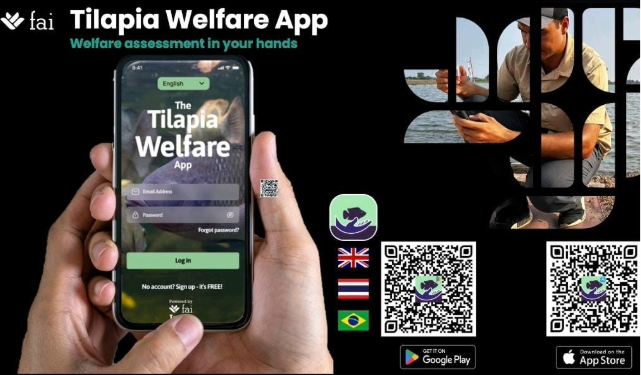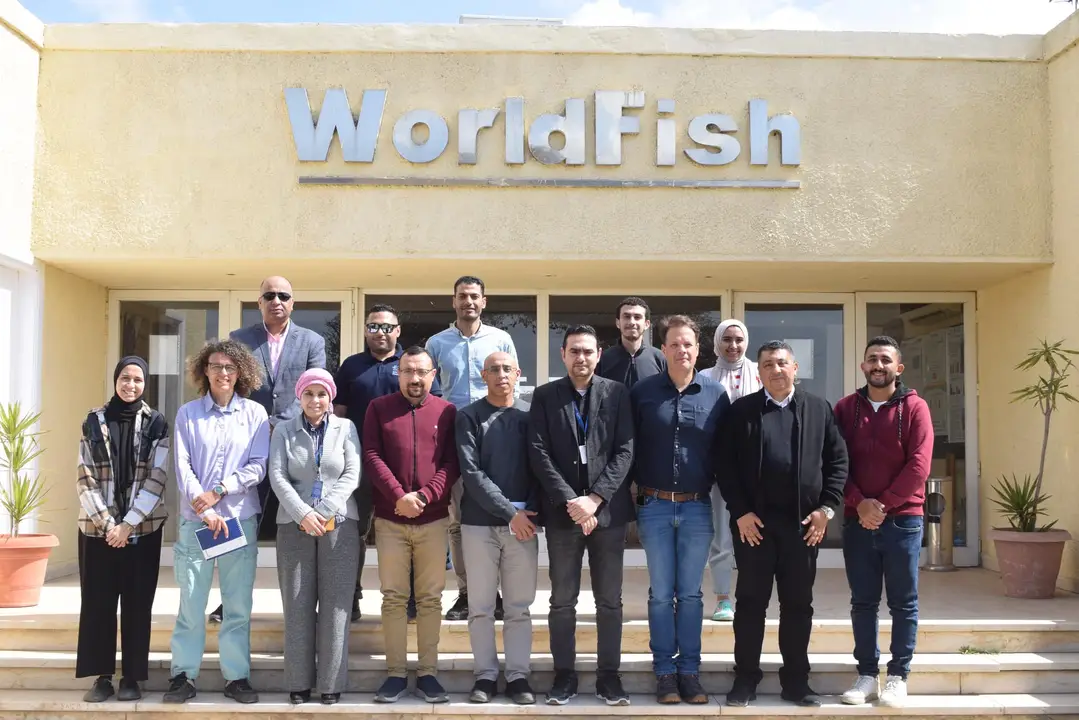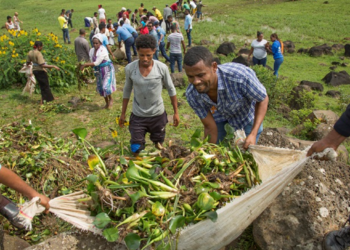FAI Farms launch the Tilapia Welfare Project to Enhance Care and Sustainability in Egypt – Egypt is a leading country in tilapia farming, and tilapia fish is one of the most popular and widely consumed fish in the Egyptian market. Fish farms are spread across the coastal governorates, and Egypt ranks first in aquaculture in Africa and sixth globally, as well as third in tilapia production but recent findings have underscored the lack of awareness around tilapia welfare in Egypt.
Tilapia fish welfare is not an individual responsibility but a collective effort everyone should participate in. Through collaboration and awareness, tangible improvements can be achieved in the care and quality of fish. Therefore, the Food Animal Initiative – FAI (https://www.faifarms.com/) has launched the Tilapia Fish Welfare Project in Egypt in collaboration with Ethical Seafood Research, Aquavet Egypt, and Kafr El-Sheikh University.
“Research carried out last year revealed tilapia welfare is completely unheard of in Egypt and it’s important this changes,” explained Wasseem Emam, founder, director, and lead researcher at Ethical Seafood Research (ESR). “We need to bring Egypt in line with other leading fish-producing countries and adhere to international standards if we are to secure new markets for Egyptian seafood.”
FAI’s CEO, Øistein Thorsen, said that “to achieve the goals of FAI’s global Tilapia Welfare Project, we need to be working in countries where tilapia is being produced at scale. We’re thrilled to be launching the project in Egypt, together with ESR. Together we will be driving improvements across major areas of the tilapia production cycle that can yield benefits to farmer profits and fish wellbeing in Egypt.”
Visiting Fish Farms
Two members of the FAI team, Murilo Quintiliano and Sara Barrento, visited Egypt to share findings of fish welfare research and provide practical assistance. They have visited various tilapia farms throughout Egypt, exploring 12 different sites, including hatcheries, ornamental fish hatcheries, small-scale tilapia farms, and large-scale tilapia farms. Additionally, they visited feed companies and monitored the dynamics of the fish market. The visits were not only for observation; they actively used the Tilapia Welfare application to assess social welfare on the farms. They also conducted three impactful workshops. The first workshop, dedicated to veterinarians and farm technicians, was held in fish farms in the Suez Canal. Then they traveled to Port Said, where they engaged with a group of tilapia businessmen in the second workshop. The last workshop, held in Kafr El-Sheikh, was attended by lecturers, farm owners, and graduate consultants working in the industry. It was an interactive workshop on the Tilapia Welfare application, discussing how to develop the application to meet the needs of farmers in Egypt and enhance their healthy and sustainable practices.
Why Tilapia Fish Welfare?
Unfortunately, conditions for fish in aquaculture are often deplorable, with overcrowding and restrictive environments. This leads, when left unchecked, to severe stress, deterioration of water quality, and further fish mortality. With the growth of aquaculture, more people rely on fish for food, and more jobs depend on aquaculture. The welfare of fish is the future, where social welfare interventions are necessary for a more sustainable, humane, and resilient future for all sentient beings. This envisions a world with healthier ecosystems, more flexible business practices, and better fish care.
The Objective of the Tilapia Fish Welfare Application
The application aims to promote sustainable fish farming practices by providing farmers with a self-assessment tool to evaluate their performance and practices. It allows sharing of the results with customers and stakeholders to ensure high-quality standards in production. The application provides free online training in multiple languages, making it accessible and user-friendly for farmers. It is expected that the application will be available in Arabic soon, increasing its effectiveness and impact on farmers in Egypt, as farmers are the most crucial factor in driving welfare improvements in aquaculture.
FAI welfare assessment protocol:
● Represent an animal welfare state using four of the five domains model (Nutrition, Physical Environment, Health, and Behavioral interactions).
● Adapted to all farming practices (hatchery, nursery, grow-out).
● Regularly reviewed and updated via a scientific committee.
Download the application through this link:
Additionally, you can obtain free certificates in fish welfare through their website:
With a focus on social and environmental care, the Tilapia Fish Welfare project aims to achieve a more sustainable and humane future for the aquaculture industry in Egypt.
FAI Farms launch the Tilapia Welfare Project to Enhance Care and Sustainability in Egypt










